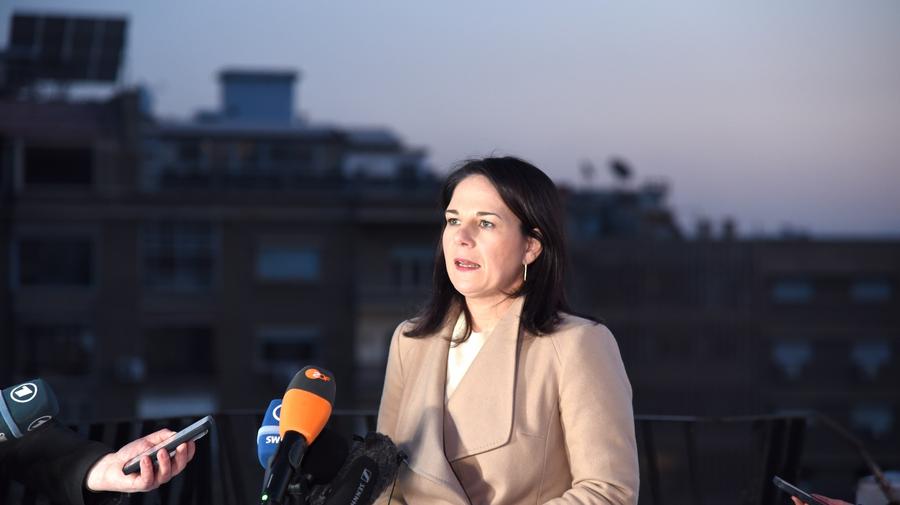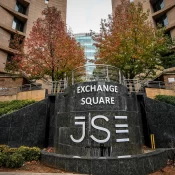
European ministers argue that women and Kurds must be involved in Syria’s transformation
Following a carefully followed first meeting with the new de facto head Ahmed al-Sharaa on Friday, Germany’s foreign minister stated that if Damascus wants European backing, all Syrian factions, especially women and Kurds, must be part in the country’s transformation.
Germany’s top diplomat, Annalena Baerbock, said she had emphasized the need to involve all ethnic groups in the democratic transition while making sure that potential European funds did not end up in the hands of “new Islamist structures” during discussions that were also attended by her French counterpart, Jean-Noel Barrot.
After visiting Sharaa at the People’s Palace in Damascus, Baerbock told reporters, “We discussed this in a very detailed and very clear manner.”
While in Damascus on behalf of the European Union, the foreign ministers of France and Germany expressed their desire to establish a new partnership with Syria and called for a peaceful transition.
Since rebels took over Damascus on December 8, forcing President Bashar al-Assad to leave after more than 13 years of civil conflict and ending his family’s decades-long dominance, Baerbock and Barrot became the first European ministers to travel to Syria.
The purpose of their visit is to acknowledge the Islamist rebels, who are led by Sharaa’s Hayat Tahrir al-Sham (HTS), as Syria’s new rulers and to urge moderation and respect for the rights of minorities.
Regarding the trip, EU foreign policy head Kaja Kallas posted on social media. “Our message to Syria’s new leadership: respecting the principles agreed with regional actors and ensuring the protection of all civilians and minorities is of the utmost importance,” she said.
SANCTIONS
In response to a question on when the EU would begin removing sanctions against Syria, Baerbock stated that it would rely on political developments. She mentioned “some positive signs” but said it was too soon to take any action.
“The past several weeks have demonstrated the optimism that the future in Syria will be one of freedom… free for all, irrespective of gender, religion, or ethnic background. However, it’s not a given that it will arrive in this manner,” she stated.
Since overthrowing Assad, Syria’s new leaders have made an effort to convince the world that they will rule for all Syrians and refrain from spreading the Islamist revolution.
Western countries are debating whether to revoke the terrorist label of Sharaa and HTS, a Sunni Muslim organization that was formerly associated with Al Qaeda and Islamic State, and have started to progressively up links with them.
There are still many unanswered problems regarding the future of a multiethnic nation where foreign powers like Russia and Turkey have powerful and possibly conflicting interests.
Prior to the negotiations, Baerbock stated that she was going to Syria with both “clear expectations” of the new leaders and a “outstretched hand,” saying that they would be held accountable for their deeds.
“We know where the HTS comes from ideologically, what it has done in the past,” she added in a statement.
In a meeting with leaders of Syrian civil society groups, Barrot of France also voiced hopes for a “sovereign and safe” Syria that would eliminate space for terrorism, chemical weapons, and hostile foreign players.
Barrot told reporters that optimism for a democratic transition was “fragile but real” and that Germany and France will provide technical assistance and advise to Syria as it prepares a new constitution.
He demanded a durable truce and a political settlement for the integration of Kurdish forces in Syria into the Syrian state. whether asked whether the EU would remove its sanctions on Syria, he remained silent.
According to diplomatic sources, Barrot also paid a visit to the French embassy, which has been shuttered since 2012. During his visit, he stated that France will endeavor to restore diplomatic representation in accordance with security and political circumstances.
The two ministers toured the expansive Sednaya facility, Syria’s most infamous jail, while they were there.
All Categories
Recent Posts
Tags
+13162306000
zoneyetu@yahoo.com


